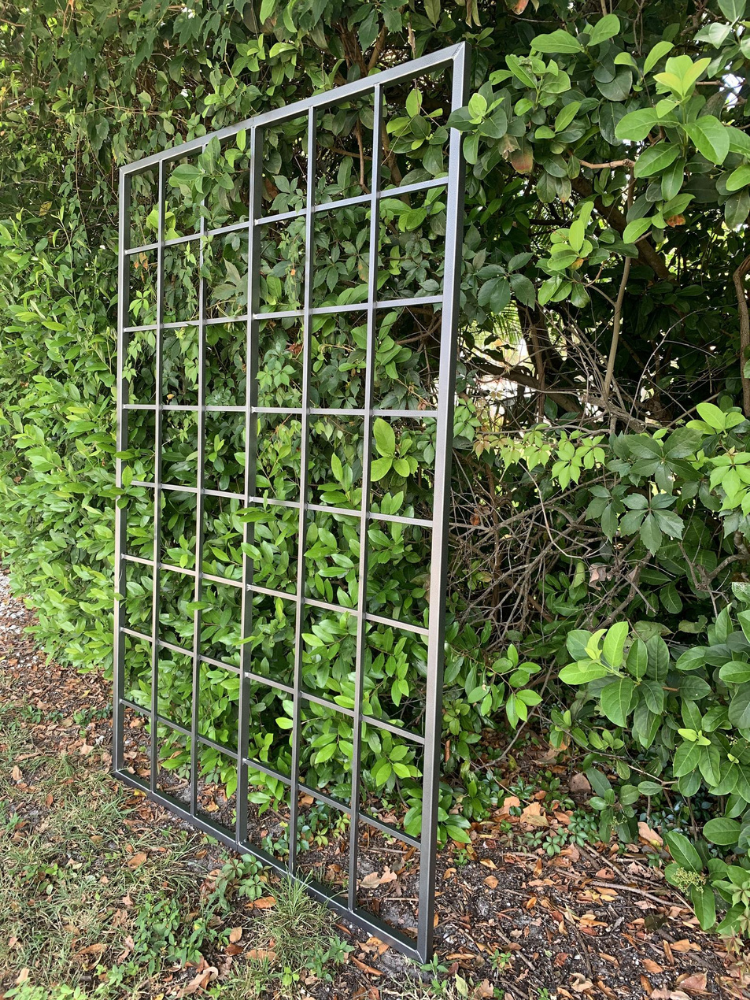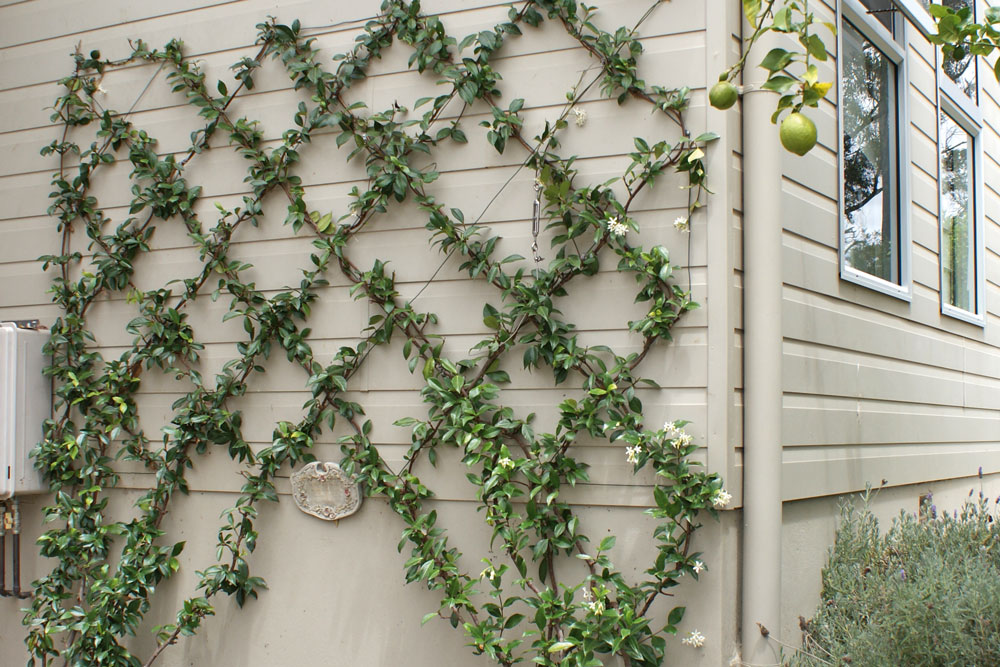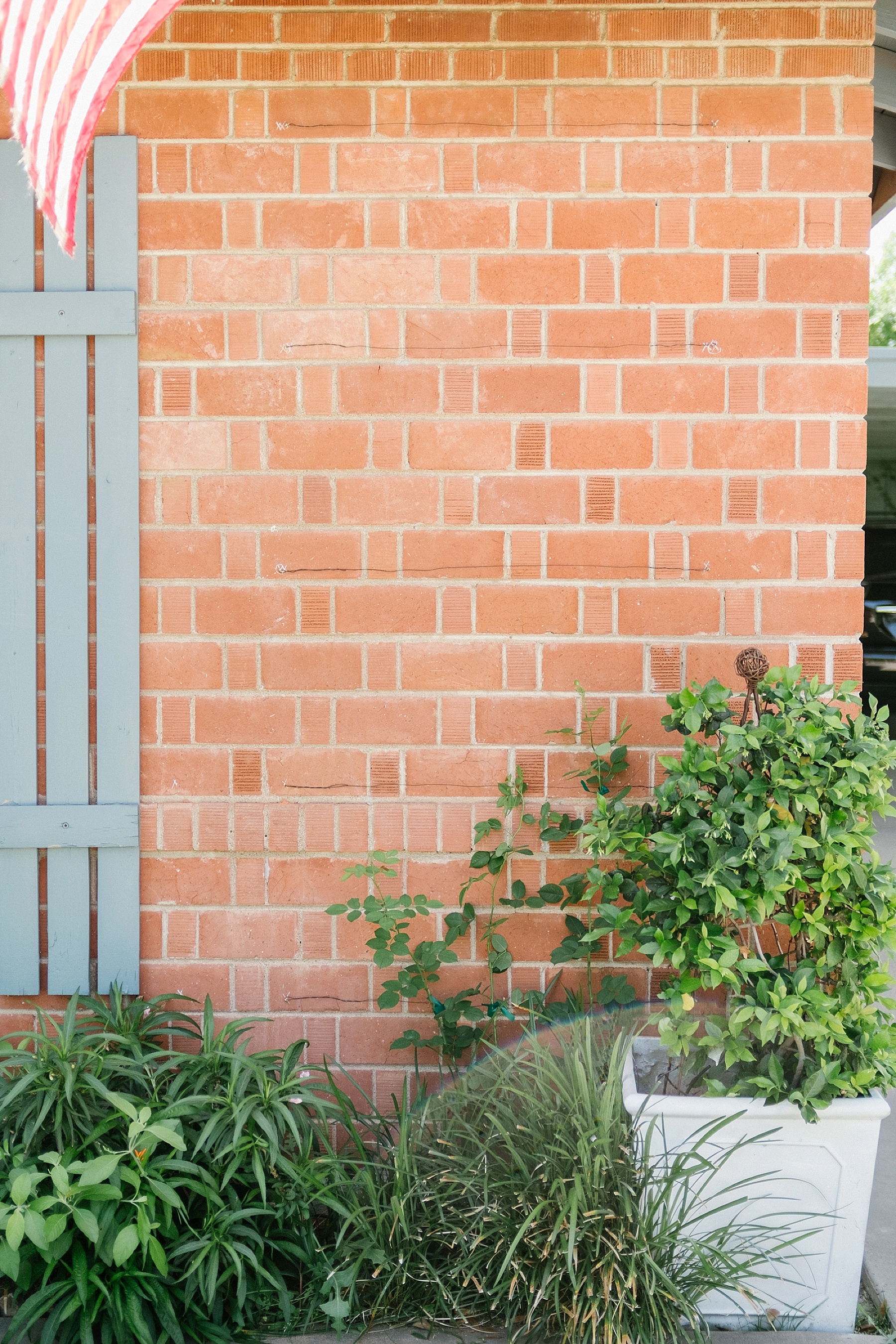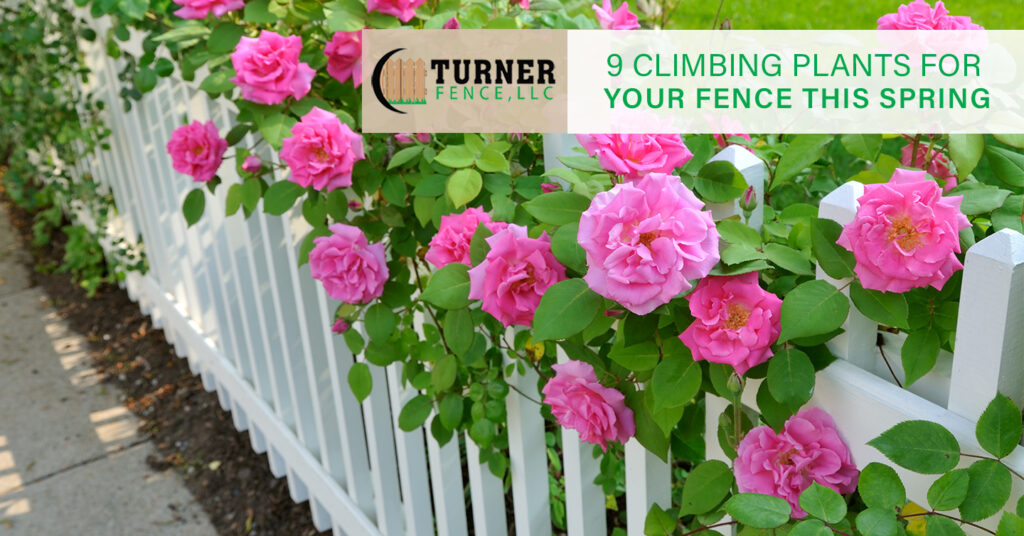
Chicken wire makes a great garden trellis for your climbing plants. Perfect for cucumbers and
The steps are to decide where the wires will go, drill holes, attach the wire to the vine eyes, tighten the wire, and tie in the plants. It's cable reimagined No DVR space limits. No.

15 Beautiful and Functional Trellis Ideas for Climbing Plants Bob Vila
Amazon.com : Acemaker Wire Trellis for Climbing Plants Outdoor - 20 Sets Heavy Duty Wire Trellis Kit with 98.4ft Wire Rope - T316 Stainless Steel Wall Trellis Kit Espalier Cable Trellis System : Patio, Lawn & Garden Patio, Lawn & Garden › Gardening & Lawn Care › Plant Support Structures › Trellises

15 Beautiful and Functional Trellis Ideas for Climbing Plants Bob Vila
Through eye bolts, thread wire. Cut and fasten the ends of the wire. Prepare holes, then insert the climbing plants. Divide the above-ground stems into the needed number of stems if the plant already has several "at the initial node, routes. Plant vines can be delicately fastened to the wire trellis using tomato wire or twine.

Wire Supports For Climbing Plants Plants BN
Amazon.com : Acemaker Wire Trellis for Climbing Plants Outdoor, 316 Stainless Steel Green Wall Espalier Trellis Kit, Heavy Duty Cable Trellis System (20 Sets Cylindrical Hubs + 98.43ft Aircraft Cable) : Patio, Lawn & Garden Patio, Lawn & Garden › Gardening & Lawn Care › Plant Support Structures › Trellises

Backyards Wall Climbing Plants Ideas 36 Diy garden trellis, Trellis plants, Rose trellis
Building a chicken wire -- also called poultry netting -- fence to let vines climb adds new space to your garden. Whether you're using your fence to support a flowering vine or to trellis a vegetable like peas or cucumbers, a chicken wire fence saves growing space on the ground while letting climbing plants follow their natural growth habits.

Make A Wire Wall Trellis Australian Handyman Magazine
How To Build A Wire Trellis For Climbing Plants? They need to be set at least 2 feet deep and at least 25 to 30 feet apart. Canes should be secured between two pieces of wood. If you have a large tree, you may want to use a trellis system to keep the tree from toppling over. If you don't have one of these, make sure your tree has a sturdy.

Wire trellis 🌱 🛠️ Enhance support and style in your garden
Space the vine eyes 1.8m apart horizontally, then run wire through them. Secure the ends by looping through the eye and wrapping around the shank. You can tighten the wire using a pair of pliers to turn the end of the vine eye. If the climber can't grip by itself, tie its stems into the wires, keeping the twine loose to allow for growth.

Grow vertical climbing plants in your garden up wires or rope to train them upwards and create a
Creeping wire vine is a sprawling groundcover or prostrate subshrub with distinctive small, round, ornamental dark green leaves and wiry stems. It requires little maintenance and is fast-spreading. This plant is a tough groundcover that copes well with a medium amount of foot traffic. It also works for use on slopes to help prevent soil erosion.

Attractive Wire Mesh For Gardens Reo Mesh Used For Climbing Plants. Pinned To Garden
Wire trellises for climbing plants The wire trellis is one garden trend that's here to stay. Wire trellises for climbing plants are an easy DIY way to extend the garden vertically up a wall or privacy fence. A long-lasting metal wire is a perfect match for a timeless plant such as ivy (or wisteria, clematis, or climbing rose).

wire trellis Wire trellis, Climbing plants, Wall trellis
Wire trellises are easy to build, cost-effective, and can support a wide variety of climbing plants. The wire trellis is currently the garden trend that has been evolving in the recent past. Wire trellises for climbing plants are an easy Do It Yourself(DIY) way to extend the garden vertically on a wall or privacy fence.

Modular wire column system to support plant perfectly. Climbing plants grow and flower better
Amazon Sold by T&H Mall Returns Returnable until Jan 31, 2024 Payment Secure transaction Add a gift receipt for easy returns 2 VIDEOS Tenn Well 3.5mm Garden Wire, 52 Feet Soft Plant Ties for Climbing Plants, Plant Training Wire for Tomato, Climbing Roses, Vines and Cucumbers (2PCS X 26 Feet, Green) Visit the Tenn Well Store 4.7 406 ratings $999

How to create a wire trellis for climbing plants Diana Elizabeth
Materials. We used the following: 2x 70mm x 35mm x 920mm treated Pine. 1x Pinnacle 3.2mm x 30m 316 Marine Grade Stainless Steel Wire Rope. 1x Taskmaster 3.2mm Copper Swage - 12 Pack. 2x Taskmaster 5mm 316 Stainless Steel Wire Eye Strap - 12 Pack. 1x Dulux 340g Duramax Flat Black Spray Paint.

Galería de Creando jardines verticales y fachadas verdes con cables de acero 3
Garden Wire - Plant Support - The Home Depot. / Outdoors / Garden Center / Plant Support / Garden Wire Garden Wire Aluminum Metal Nylon Plant Clip Trellis Hillman 48 Results Sort by: Top Sellers Get It Fast In Stock at Store Today Next-Day Delivery Availability Show Unavailable Products Department Outdoors Garden Center Plant Support Garden Wire

Espalar Wire Anchor Espalier made easy Climbing plants fence, Wire trellis, Climbing plants
Create a Trellis for Climbing Veggies Using Bamboo The Coupon Project These simple bamboo trellises work great if you have a vegetable garden in need of stakes. You should be able to find these bamboo sticks at a local garden center for around $1 a stake, but they can also be ordered online. You'll Need: Bamboo

9 Climbing Plants for Your Fence This Spring Turner Fence
How should climbing plants be secured? Climbing houseplants can be supported well using wood, wire, rattan, bamboo, and rattan. Trellis, spindles, and even circular arches are available. You can always create your own if you have the necessary skills using a little amount of plastic-coated or non-rusting wire.

Diagonal wire, for climbing plants Diy garden trellis, Backyard landscaping, Diy trellis
Step 1 Use chalk to mark where you want to drill. I decided instead of vertical I would go horizontal and let the roses go wherever they want and tie them to the floral wire. I decided the best way to know it was lined up was to pretend string it from top to the very bottom then fill in the rest.